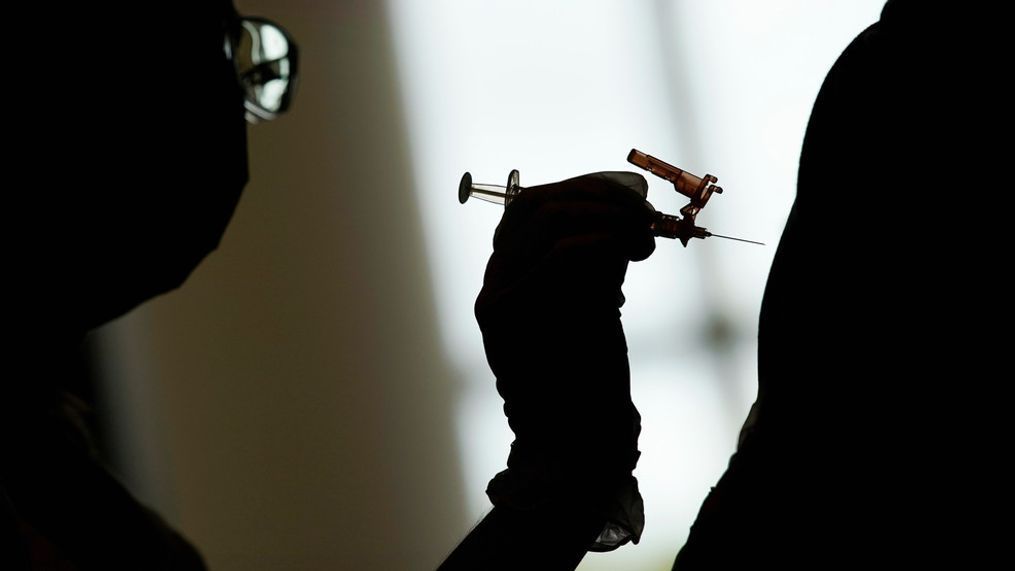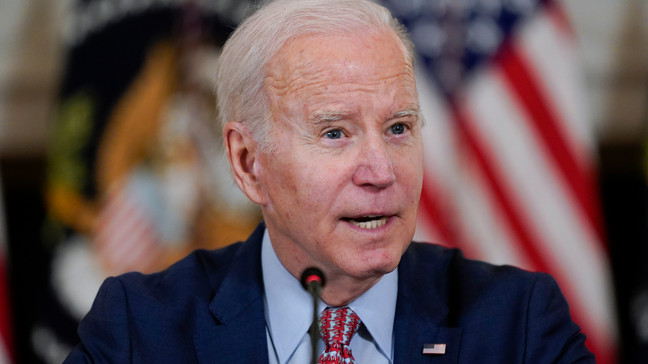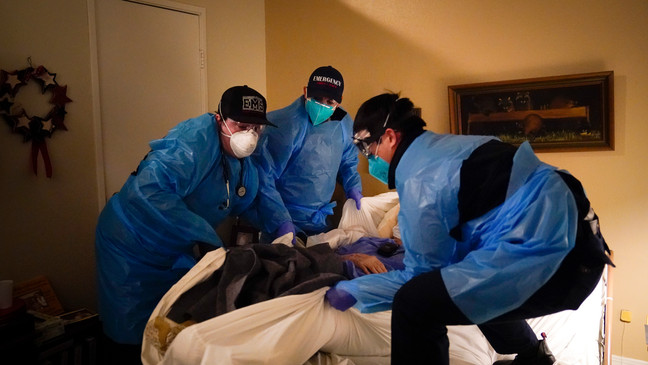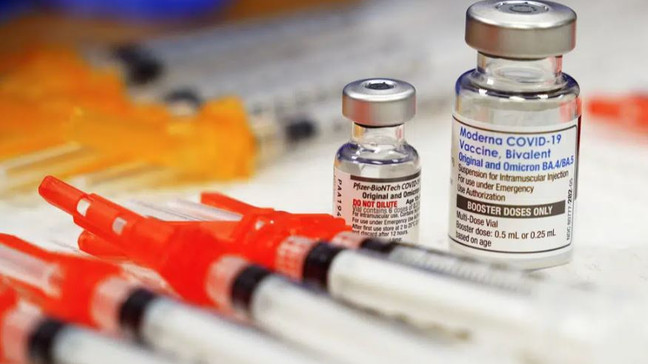The COVID-19 public health emergency is over. Now what?
WASHINGTON (TND) — After more than three years, 104 million positive cases and 1.1 million deaths, Thursday brings an official end to the federal government’s designation of the COVID-19 pandemic as a national public health emergency.
The Biden administration allowed the emergency declaration to expire on Thursday, wrapping up years of emergency status that brought on trillions in government spending, the development of multiple highly effective vaccines and treatments and an on-the-fly reshaping of the nation’s public health institutions.
Federal officials have been preparing for the end of the public health emergency for months as the pandemic has receded from daily life, though it continues to infect thousands of people every day and is still killing more than 1,000 Americans a week, according to Centers for Disease Control and Protection data.
Many outside experts are concerned that the country is prepared to deal with the next pandemic or even deal with a future COVID variant ramping up infections and hospitalizations again at a time where masking has become more irregular and government-provided tests and treatments will soon be gone.
“We learned a lot of lessons. Have we applied them? That is the critical question,” said Jeff Levi, a professor of public health at George Washington University.
Thousands of people have left local health departments and the medical system has rampant issues with burnout, retirements and even deaths caused from infections spreading to frontline workers during the worst of the virus.
“For the frontline folks who have to deal with the patients in front of them, they've learned a lot, but they've also suffered a lot as a result of it and I don't think we're meeting our obligation to heal that and build resilience in the system to recover,” said Jeffrey Schlegelmilch, director of the National Center for Disaster Preparedness at Columbia University. “I don't think government has stepped up to the plate yet to truly learn the lessons and apply them in a holistic way.”
Despite a congressional directive, the White House has not yet set up a pandemic preparedness office and several key officials from the coronavirus response have left office or are preparing to do so. CDC director Dr. Rochelle Walensky announced she will be leaving office June 30, coronavirus response coordinator Dr. Ashish Jha will be stepping down and perhaps the most high-profile government voice from the pandemic in Dr. Anthony Fauci retired in December.
The costs for tests, vaccines and other treatments for COVID-19 will also soon transfer to the American public, which has had all of those provided on the government’s dime for the last three years. The Biden administration has set up some programs to keep vaccines free for people without insurance, but a failed fight with Congress for more COVID funds may limit those programs’ impact.
The end of the emergency will also change the way data is reported to the CDC, which has already announced it wouldn’t be tracking community levels of the virus or what percentage of tests are positive.
Many health departments, which have chronic underfunding and staffing problems, are also facing uneven funding moving forward without long-term plans from Congress. About $3 billion will be distributed over the next five years for public health agencies to build up their workforce, but there are questions as to whether that will be enough to fill the need.
“That's a really good start, but it's not sufficient and it is not guaranteed to be there over time,” Levi said. “It's really hard to recruit people to come work for public health, where they haven't exactly been treated well by some parts of the public, if there isn't some level of assurance that those positions are going to be funded and funded in the long term.”
Public health experts have said that failing to provide enough funding for state and local health departments has hampered the system’s ability to prepare for an outbreak and to minimize its effects once it happened.
“The reason why we're spending so much on the pandemic is because we didn't spend it on preparedness,” Schlegelmilch said. “We’re spending literally multiple trillions of dollars on the pandemic, instead of a few hundred million more on state and local preparedness prior to the pandemic, and so that's the tradeoff.”
Congress has also not been able to come to an agreement on a bipartisan panel to investigate the U.S. COVID response and the origins of the virus, though efforts for that were revived this week. Instead, multiple committees have conducted their own investigations with varying levels of partisanship and mandates about their objectives.
A bipartisan bill creating a 9/11 Commission-style task force was introduced on Wednesday by a bipartisan group of senators. The task force would investigate the pandemic origins, the U.S. response to the pandemic, the availability of supplies and resources to fight the pandemic and the government’s role in developing and distributing vaccines.
“The pandemic fundamentally changed our society, economy and public health systems, and it is essential Congress takes action to prevent and prepare for future public health emergencies,” said Sen. Kirsten Gillibrand, D-N.Y. “A scientific and clear-eyed investigation is absolutely critical to strengthening our nation’s preparedness for future health crises.”
The task force would be given authority to hold hearings, take testimony and issue subpoenas. Each party would get to appoint six members and have an interim report ready within a year.
“In hindsight, there were many missteps made in the preparation and response to COVID-19—and possibly even in the origins of the pandemic,” said Sen. Joni Ernst, R-Iowa. “Learning from these mistakes is the only way to avoid them in the future. Every day we delay this independent, transparent investigation, we risk a fatal repeat. I am proud to be part of this bipartisan effort to uncover the truth before it is too late.”
An effort to create the task force stalled during the last Congress despite the legislation passing a committee with broad bipartisan support. A companion measure was never introduced in the House and President Biden did not take a public position on it.
“We are seeing insufficient attention to what this moment requires, and anyone who thinks the pandemic is over and we're done, and we're not going to see another one in our lifetime just isn't looking at the data,” Schlegelmilch said.



